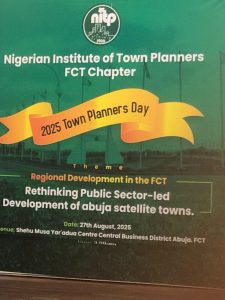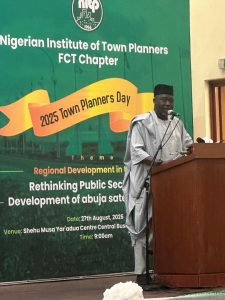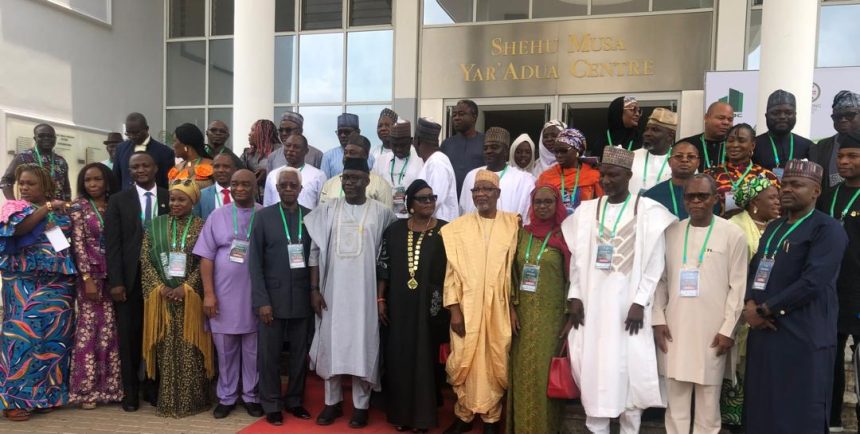By Ameh Gabriel
The Nigerian Institute of Town Planners (NITP), Federal Capital Territory (FCT) Chapter, on Wednesday held the 2025 edition of its annual Town Planners Day with a call for renewed strategies to ensure balanced and inclusive development of Abuja’s satellite towns.
The event, themed “Regional Development in the FCT: Rethinking Public Sector-Led Development of Abuja Satellite Towns”, brought together policymakers, professionals, and development partners to interrogate the challenges and opportunities in shaping the future of settlements around the Federal Capital City.
In her opening remarks, the Chairman of NITP FCT Chapter, Town Planner Queen Phillips FNITP, said Abuja’s master plan envisioned satellite towns as complementary hubs to accommodate population growth, reduce pressure on the city centre, and drive economic opportunities. She, however, noted that many satellite towns still grapple with inadequate infrastructure, weak service delivery, and poor governance systems.
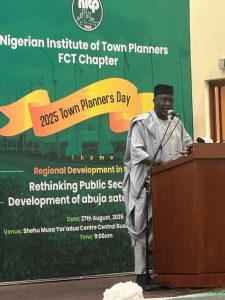
“While the FCT Administration has introduced reforms in land administration and infrastructure expansion, the disparity between the city centre and satellite towns remains glaring,” she said, urging participants to move beyond diagnosing challenges to proposing actionable solutions that will transform satellite towns into vibrant, inclusive, and resilient communities.
Representing the Chairman of the occasion, Coordinator of the Abuja Metropolitan Management Council (AMMC), Chief Felix Amechi Obuah, Director of Development Control, Tpl. Mukhtar Galadima, stressed the need for government to work more closely with professionals, private investors, and local communities to drive meaningful change. He highlighted ongoing road expansion and infrastructure projects but admitted that bureaucracy and funding limitations have slowed progress.
“Abuja cannot thrive while its satellite towns struggle. Beyond public sector efforts, we must embrace public-private partnerships, innovative financing, and creative planning models to unlock the full potential of towns like Bwari, Gwagwalada, and Abaji,” Galadima said.
Delivering the lead paper, Tpl. Dr. Yakubu Aliyu Bununu, emphasized that regional planning in the FCT must shift from being government-driven to a model that embraces collaboration, sustainability, and inclusivity. He called for stronger integration of housing, transport, and service delivery systems to decongest the city centre and improve the quality of life in surrounding communities.
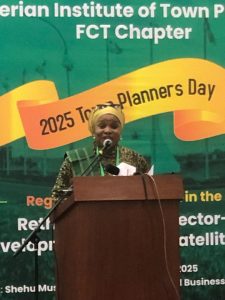
Other speakers, including Tpl. Dr. Daniel Adamu and Tpl. Timeyin Uwejamomore FNITP, stressed the importance of spatial planning, governance reforms, and infrastructure redesign in addressing urban challenges, while past NITP President Kabiru Yari described the theme as timely in view of the historical neglect of satellite towns in Abuja’s development strategy.
Goodwill messages from the leadership of the Town Planners Registration Council (TOPREC) and other stakeholders also reinforced the need for stronger institutional collaboration to overcome conflicts, policy inconsistencies, and underfunding that have hindered regional growth.
The 2025 Town Planners Day ended with a collective call on government, professionals, and communities to reimagine Abuja’s satellite towns not as neglected peripheries but as engines of growth and sustainable development.
